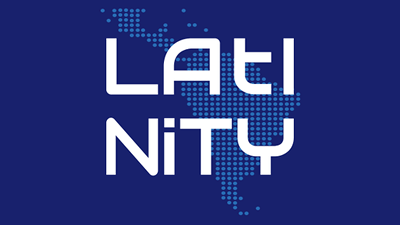Diversity in Technology

A native of Colombia, Luza Jaramillo (CIT 2012) points to the corporate diversity disclosure reports as she readies for the first-ever LATINITY, a technology conference that she helped to organize.
Three percent of Google's U.S. workforce is Hispanic, and other Silicon Valley companies also report single digits. The percentage of women in engineering roles ranges around only 20 percent, while the presence of Hispanic women is barely perceptible.
"We have to take action now if we want to encourage more women to pursue careers in technology and, once there, stay on track," Jaramillo said.
The Information Networking Institute (INI) in Carnegie Mellon's College of Engineering sponsored Jaramillo's first conference attendance at the Grace Hopper Celebration of Women in Computing in 2010. The INI is a gold sponsor and has provided a handful of conference scholarships to INI students like Jaramillo for the past nine years.
The INI sets an example among educators not only to support but also take action to increase gender and ethnic diversity in engineering.
INI Director Dena Haritos Tsamitis leads a long-term strategy to diversify that involves a variety of efforts. She co-founded the Women@INI student-led organization that fosters an inclusive learning environment. The INI coordinates with alumnae and female technology executives to set up networking and mentoring opportunities. The INI also recruits globally.
"Sponsoring students to attend Grace Hopper and similar minority-serving conferences is just one facet of the INI's commitment to diversifying the field," said Tsamitis, noting that the INI has seen a steady rise in female students over the past 10 years through outreach initiatives and strategic partnerships. "However, it is not simply about attracting more women to the field. Our focus is on removing barriers and enacting a culture shift that embraces all individuals, no matter their gender, ethnicity or background."
After collaborating with the organization in subsequent years, she joined other members of Latinas in Computing in 2015 to organize LATINITY, realizing a dream the women shared to bring a conference similar to the Grace Hopper Celebration to Latin America.
LATINITY launched in Santiago, Chile, Nov. 9–10. Conference co-chair Natalie Gil (HNZ 2009) helped to organize it and attracted others, including Jaramillo and Heinz College information systems student Carla Luyo. The first edition took place in conjunction with Jornadas Chilenas de Computación, a major computing conference.
"LATINITY provides a platform for individuals and organizations that are already doing great efforts in the region but don't have access to resources, such as the Grace Hopper Conference, or want to have something closer and relevant to the region's culture," said Gil.
Luyo sees a broad benefit to encouraging diverse students to explore careers in engineering.
"Latin America [is a place] where technology has recently gained a lot of traction. It is a nascent market, with new challenges, that needs highly skilled and passionate people to take this opportunities and work on them. LATINITY is a perfect place to start creating a network of such people," Luyo said.
Related:
Women in Computing
|
Sample Diversity Statistics of U.S. Workforce | |||
|---|---|---|---|
| Apple | 29% female | 12% Hispanic | 4% Hispanic female |
| 29% | 3% | 1% | |
| Intel | 24% | 8% | 2% |